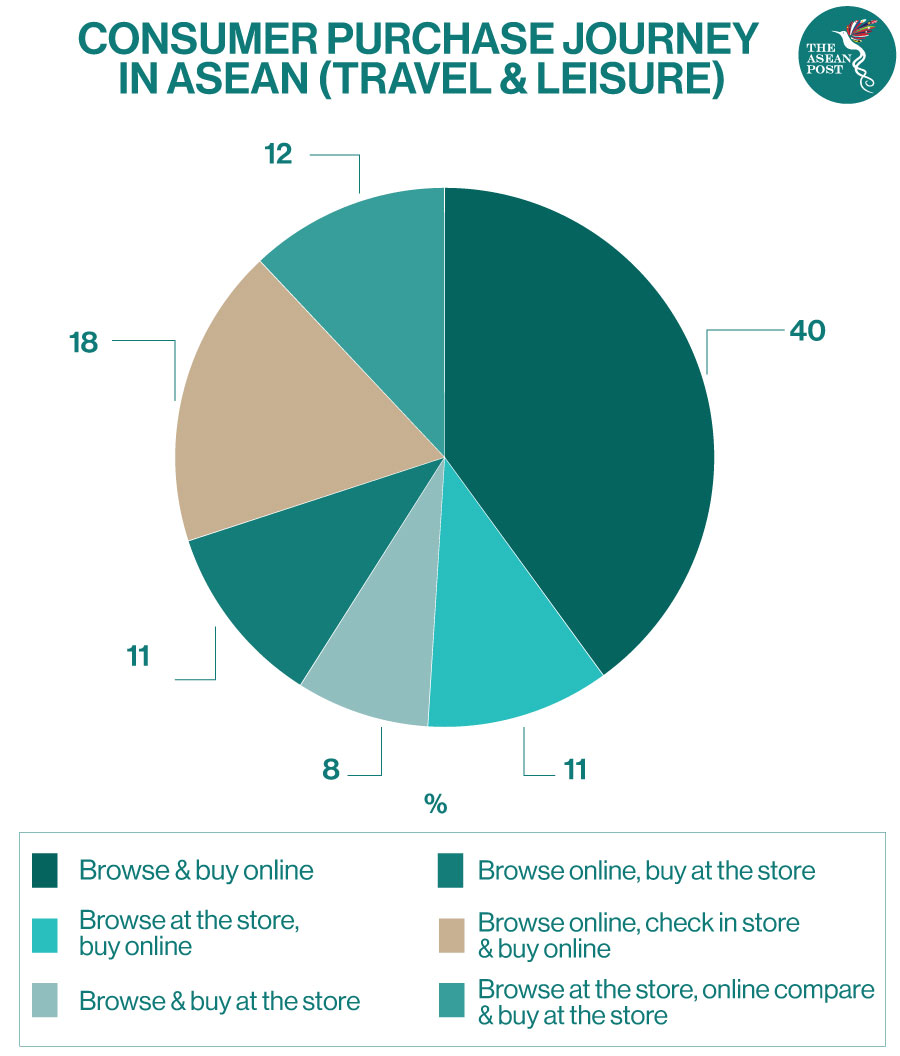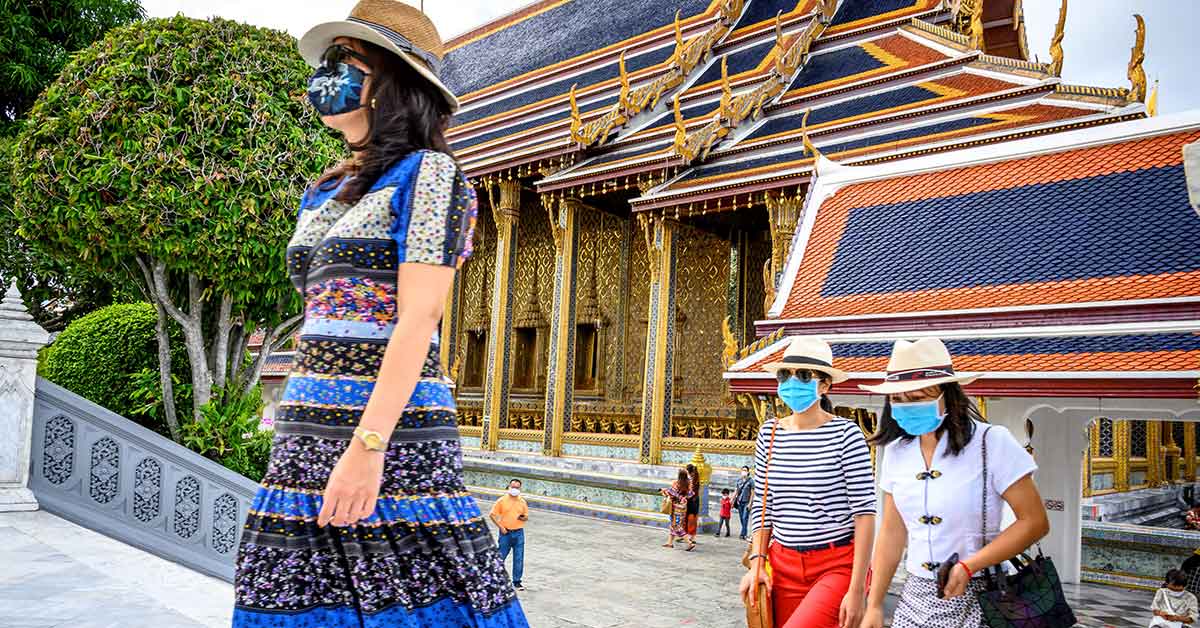Southeast Asia’s rapid growth has led to a rise in income which has enabled its citizens to enjoy leisure travel in the form of long-haul destinations and micro-trips. The region’s budget travel market, including low-cost flights, is also expected to grow exponentially. The rise of low-cost airlines and the growing affluent middle class in the region has changed the landscape of the tourism industry immensely.
Technology plays a significant role in the advancement of the travel industry, where more tourists are making their bookings online. Research by Google-Temasek revealed that online travel is the largest and most established segment of Southeast Asia’s internet economy.
Tourists often look for a combination of perks and deals when booking online for hotels. Travel agencies are dependent on online booking platforms as they provide data management, online transactions and timely customer services.
Booking platforms or online travel agents (OTA) not only redirect tourists to hotels offering the best deals but also does the same for airlines, car rental companies and other travel related services. OTA is an all-in-one platform providing real-time availability and price comparison information to consumers. Metasearch engines are allowing tourists to compare prices across OTAs to find the best possible deals.
According to a 2017 Meltwater Report on Digital Disruption of the Hospitality Industry, Southeast Asia’s online travel spend is expected to reach US$76 billion by 2025. Some of the leading OTAs in the region include Booking.com, Agoda and Expedia. For OTAs, affordability is usually their main selling point.
Online Travel Disruptors
In today’s digital world, disruption is inevitable. An all-in-one platform site makes it easy for tourists to acquire vast information on hotels, restaurants, and read guest reviews which enables them to make better decisions when choosing their place for travel. OTAs like Agoda and Expedia have given consumers the power to get better deals as opposed to booking directly with hotels.

Southeast Asia’s travel unicorn start-up, Traveloka, is a leading travel and lifestyle booking platform. Traveloka’s selling point goes beyond just offering competitive airfare and hotel room rates, but also providing the ultimate booking experience to its users with flexible payment options to boot. With more than 40 million active users across Southeast Asia, Traveloka’s users can explore thousands of travel products and activities.
Traveloka’s service, ‘Xperience’ offers a comprehensive range of options such as attractions, entertainment and short tour packages, reducing the hassle for tourists. This easy-to-use platform promises tourists new and unique experiences and includes spa packages and favourite local activities.
A trip to the neighbourhood mall today counts as a journey, and Traveloka wants to cash in on these trips as well. “Our definition of travel has shifted,” said Traveloka’s chief marketing officer, Dannis Muhammad, whose company is now offering restaurant vouchers and special dining deals for users in Indonesian cities. In Jakarta, 80 percent of tenants offering services or lifestyle products are now bookable on Traveloka.
Brands that build their services to connect tourists to their immediate surroundings and people rather than just providing digital connectivity will fare much better as travelling trends change.
Another disruptor competing in the online travel space is coming from Southeast Asia’s biggest low-cost carrier, AirAsia. The airline’s CEO, Tony Fernandes says that the company’s future lies in being “more than just an airline.” Planning to monetise on AirAsia.com’s 65 million monthly active users, the company has relaunched its website and apps to now offer hotel bookings and other perks such as tours.
Tourism Amid The Pandemic
With the current coronavirus crisis, most Southeast Asian countries have prohibited international commercial flights, thus severely affecting the tourism industry in the region.
Myanmar’s Deputy Minister for Hotels and Tourism, U Tin Latt expects tourist arrivals in the country to fall by 50 percent this year, while Thailand is projected to see at most eight million foreign tourists this year – down 80 percent from last year. Millions in the tourism and aviation industries across ASEAN member states have lost their jobs due to the pandemic.
As virus restrictions are gradually eased in some member states, hotels and OTAs are now racing to restart tourism – starting with local travellers.
“When you are spending on local businesses, you are helping build these businesses and this will improve our economy as a whole,” said Musa Yusof, Tourism Malaysia’s director general.
It was reported that the COVID-19 outbreak has brought down the number of foreign visitors to Vietnam to close to 3.7 million in the first half of 2020, a 57 percent decline year-on-year. This has prompted the government of Vietnam to focus on domestic tourism to boost its economy. It launched a campaign called ‘Vietnamese travel in Vietnam’ offering discounts for locals and free entry to tourist spots.
“Given the current context, the domestic market is considered a fulcrum for Vietnam’s tourism industry to gradually regain growth momentum,” said Bui Thi Thanh Huong, vice chairwoman of Sun Group, a property developer that’s offering discounts of as much as 60 percent at some resorts and theme parks.
Some hotels are now even offering sale packages for a ‘staycation’ for locals. And the fastest and convenient way to find the best deal is through OTAs.
Advancement in technology is changing the landscape of travel and tourism drastically. Bookings can be done immediately, with less preparation time and with a variety of choices to choose from. Price comparisons across platforms also guarantee an economical trip and artificial intelligence (AI) in the form of chatbots provide on-demand ‘human’ assistance.
The readily available information, fast booking process and different categories of entertainment and attractions to choose from, will change the focus to more unique experiences with personalised travel.
Related Articles:
